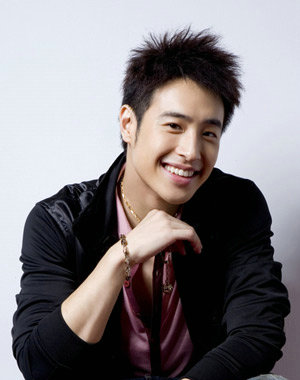
#Chinese pure music Pc
Many of the top hyperpop artists overseas, such as PC Music’s Sophie, identify as transgender or nonbinary - a trend commentators attribute to the scene’s promotion of freedom of expression and performativity. The music also has a following among LGBT Chinese, Jiafeng says. “They’re young people who follow trends and are deeply influenced by internet culture,” says Sun. Most Chinese listeners are digital natives, he adds. Many incorporate unusual materials, such as latex or metal, into their outfits.Ĭlayton Sun, a 22-year-old hyperpop fan, says the genre is a refraction of online culture, which tends to push everything to the extreme. Fans prefer to dress and dye their hair in effervescent colors. The music they’re producing is wild, colorful, and highly emotional Chinese youth culture outlet On the Road characterized hyperpop as “malfunctioning emotional music.” The scene’s visual aesthetics reflect this. The songs are almost all one or two minutes long - totally 21st century.” “It’s easy to create, everyone can do it. “It’s for TikTok users, children, or people who want to be younger - including me,” says Bloodz Boi, a rapper and hyperpop artist based in Beijing. The movement’s postmodern aesthetic - a semi-ironic embrace of consumerism, blending of different strands of pop culture, and focus on self-expression - appeared to resonate with a generation that had grown up online. Other young Chinese creators were similarly inspired. The influences run through his most recent album, “Emotional Dance Music.” Whereas Cook drew mainly from electronica and Eurodance, Jiafeng took inspiration from the Asian styles he’d grown up with: bubblegum pop and high-tempo K-pop by the likes of Lee Jung-hyun. The young DJ began playing around with hyperpop, but decided to put his own spin on the genre. “When I first heard this type of music, I thought it was something amazing,” he says. Jiafeng, who grew up in the central Chinese city of Changsha, saw Cook perform for the first time at a Beijing music festival in 2017. Cook played a key role in its move east, collaborating with the Chinese pop star Li Yuchun (also known as Chris Lee) on a pair of tracks in 2015 and making several appearances in the country. The Guardian described PC Music’s output as “sickly, abrasive, and ultra-synthetic.” Music magazine Fact called it “pure, contemptuous parody.”īut British teens embraced it - and the movement soon spread to China. From the beginning, it was hugely divisive. The style soon started to be labeled hyperpop - a reference to its exaggerated, buoyant, and camp ethos. Cook and his record label PC Music first gained traction with a catchy, nostalgic sound that drew heavily from cheesy ’90s Eurodance in 2014. Hyperpop’s origins lie in the London music scene of the mid-2010s. Gao Jiafeng performs on the music talent show “Strawberry Man,” 2021. If you hold hostile feelings toward this kind of happy music … what kind of person are you?” “They don’t understand hyperpop at all,” Jiafeng tells Sixth Tone. Yet hyperpop fans argue that attitude is out of touch. On the other, there’s an old guard of music industry gatekeepers who appear perplexed - and a little disturbed - by their underground success.įor these veteran producers, who have spent their careers managing studiously edgy pop and rock acts, the self-proclaimed “useless” new movement violates all normal standards of good taste.


On one side, there’s an insurgent group of young hyperpop artists who are attracting a growing following with their playful, club-friendly music. For many, it encapsulated the yawning divide that has opened up between two generations of Chinese musicians. The encounter - which Jiafeng later revealed in a viral post on the social platform Weibo - has since become infamous in China. “You’re an alien here, you shouldn’t be on this stage,” he allegedly told the singer as he walked out of the studio.

After the broadcast, he went even further. Zhang Yadong, a high-powered Chinese producer, sat stony-faced through the performance before commenting frankly that he disliked the song.


 0 kommentar(er)
0 kommentar(er)
